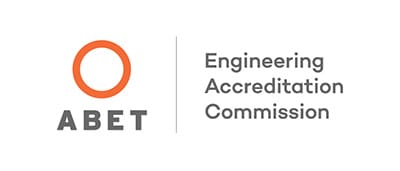Home / Academics / Departments / Mechanical Engineering Department
Mechanical Engineering Department
Bradley University’s Mechanical Engineering (ME) program offers a versatile education that prepares students for diverse careers in engineering and beyond. ME professionals innovate across industries, advancing energy, healthcare, transportation, and defense. The program provides a strong engineering foundation with options to specialize in energy systems or biomedicine.
ME graduates excel in traditional engineering roles as well as fields like IT, consulting, finance, law, and medicine. Students gain hands-on experience in state-of-the-art labs focused on robotics, fluid dynamics, thermal science, and material science while engaging in real-world projects with faculty and industry professionals. Bradley’s accredited ME degrees equip students for immediate employment, graduate studies, or non-traditional career paths, with enhanced learning opportunities in the university’s new business and engineering complex.
Majors
Mechanical Engineering
Focus your learning with degree concentrations in Biomedical, Chemical, Energy or Robotics Engineering.
Learn More
Graduate Program
Mechanical Engineering (MS)
Advance your technical expertise with hands-on research experience that allow you to tackle real-world engineering challenges.
Learn More
Departmental Resources
Bradley’s motorsports club gives all engineering majors opportunities to work on four student-designed cars each year. Interested students can gain hands-on experience with the college’s eco marathon, Formula SAE, SAE baja and solar cars.
The main objective of these certificates is to provide practicing engineers, interested in enhancing their knowledge, designing, servicing and maintaining robotic systems, a deep understanding of various topics in robotics technologies and a strong awareness of the systems within which robotics systems are engineered.
Robotics and Artificial Intelligence are disruptive technologies that pervade many industries and applications. While they are displacing some traditional industries and workers, additional ones are created. More people are needed to design and operate the new systems, and even more to fix them, when they break.
Bradley’s Robotics Engineering Certificate gives a solid foundation in the fundamental disciplines of robotics engineering that will help you advance in your career and open up additional career paths in this fast-growing field. The certificate program covers four broad topics, each at two levels of basic and advanced. Each of the 8 modules will be offered to a cohort of participants, subject to sufficient participant interest. Each module is 16 hours and will be offered in two 2-hour sessions per week with each module lasting 4 weeks. The Cost of each module is $1500. The following modules are planned.

Accredited by the Engineering Accreditation Commission of ABET, under the commission’s General Criteria and Program Criteria for Mechanical Engineering using:
Program Educational Objectives (PEOs)
- Our alumni are becoming leaders and stewards in their chosen profession and in society through their contributions to professional practice, research, entrepreneurial initiatives, or policy.
- Our alumni apply ethics and sustainability principles in their profession and commit to life-long learning, earn licensure and become experts and mentors in their chosen profession.
- Our alumni have the needed awareness of relevant global issues and cultures in order to thrive in a complex and multicultural world.
Student Outcomes (SOs)
- an ability to identify, formulate, and solve complex engineering problems by applying principles of engineering, science, and mathematics;
- an ability to apply engineering design to produce solutions that meet specified needs with consideration of public health, safety, and welfare, as well as global, cultural, social, environmental, and economic factors;
- an ability to communicate effectively with a range of audiences;
- an ability to recognize ethical and professional responsibilities in engineering situations and make informed judgments, which must consider the impact of engineering solutions in global, economic, environmental, and societal contexts;
- an ability to function effectively on a team whose members together provide leadership, create a collaborative and inclusive environment, establish goals, plan tasks, and meet objectives;
- an ability to develop and conduct appropriate experimentation, analyze and interpret data, and use engineering judgment to draw conclusions;
- an ability to acquire and apply new knowledge as needed, using appropriate learning strategies.

